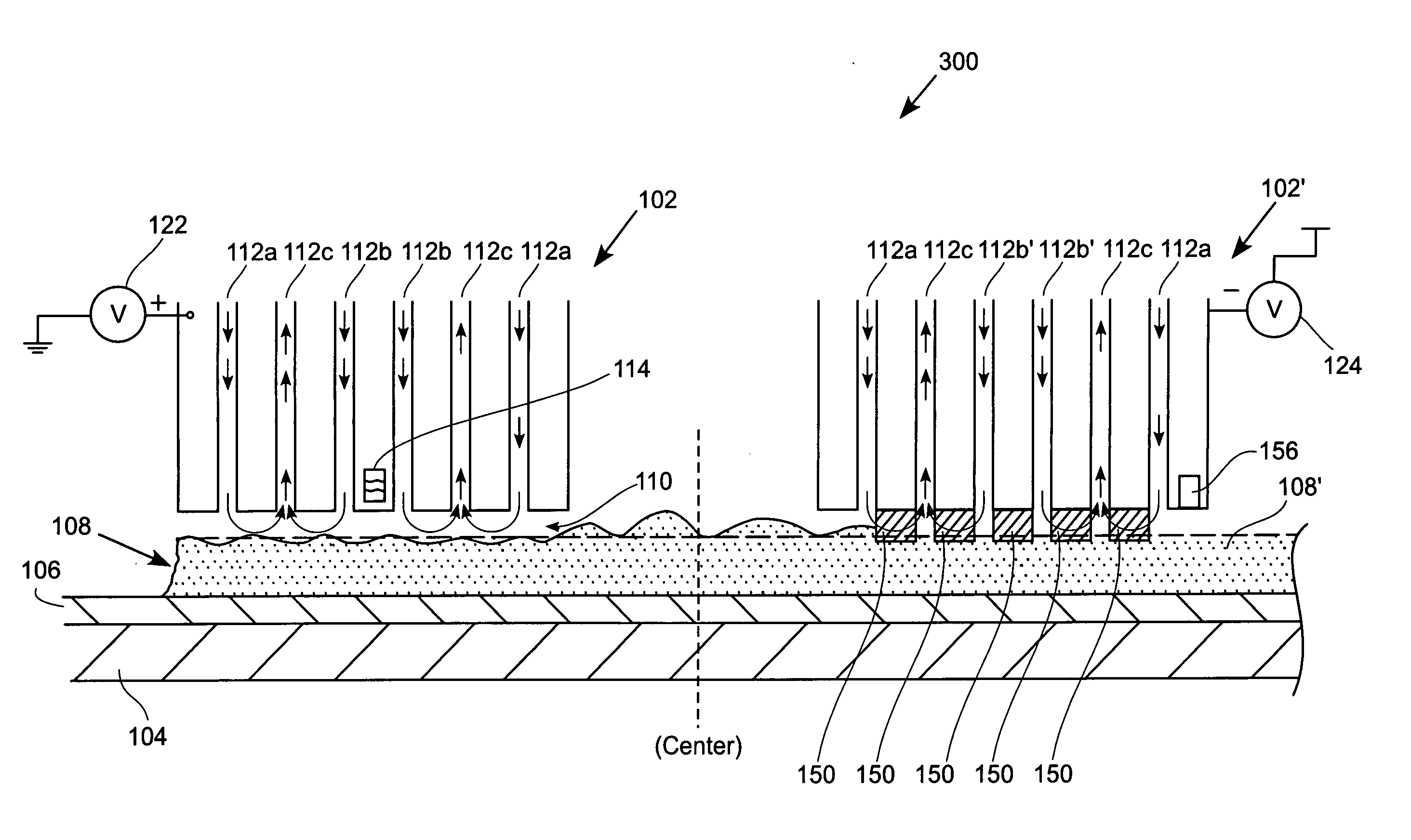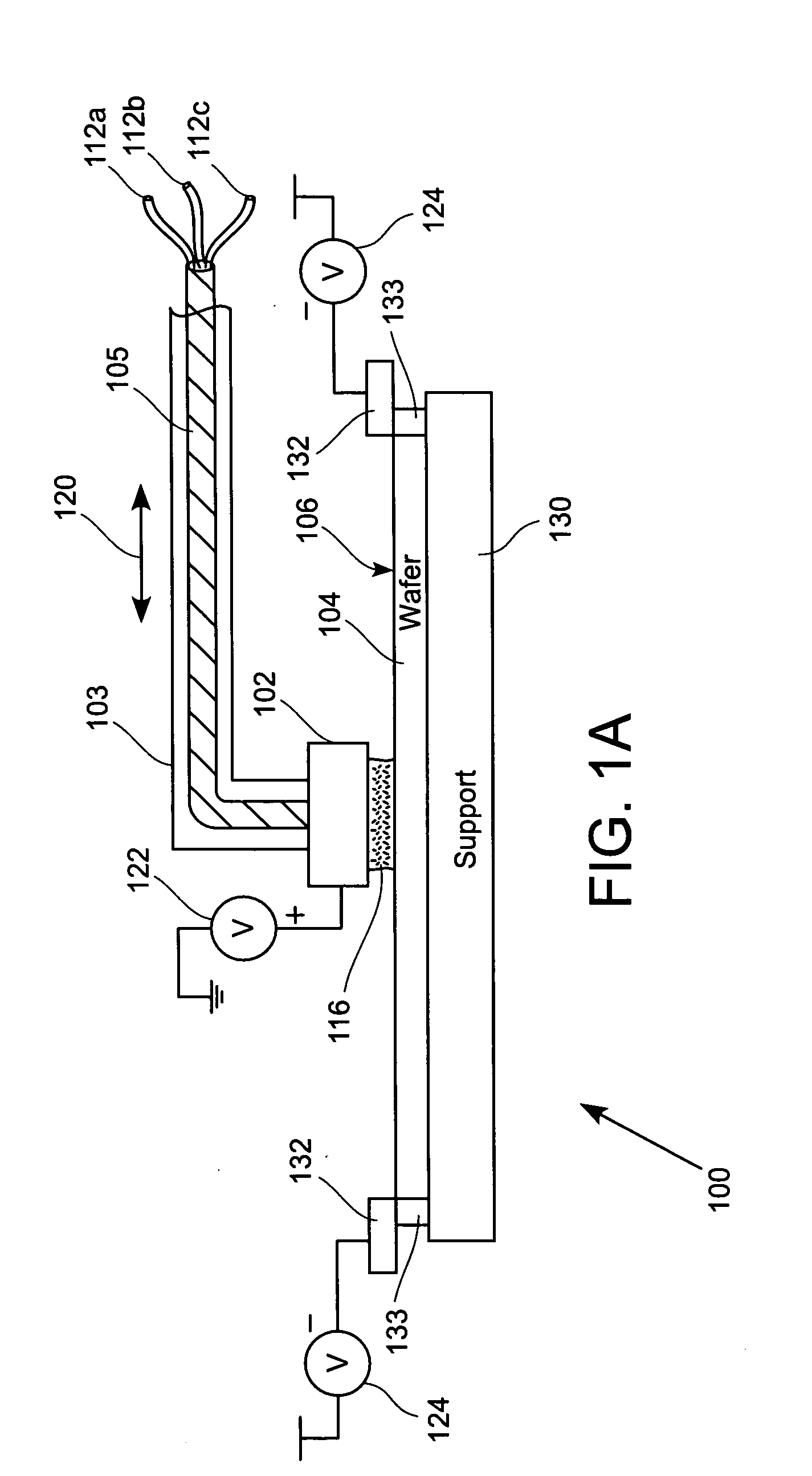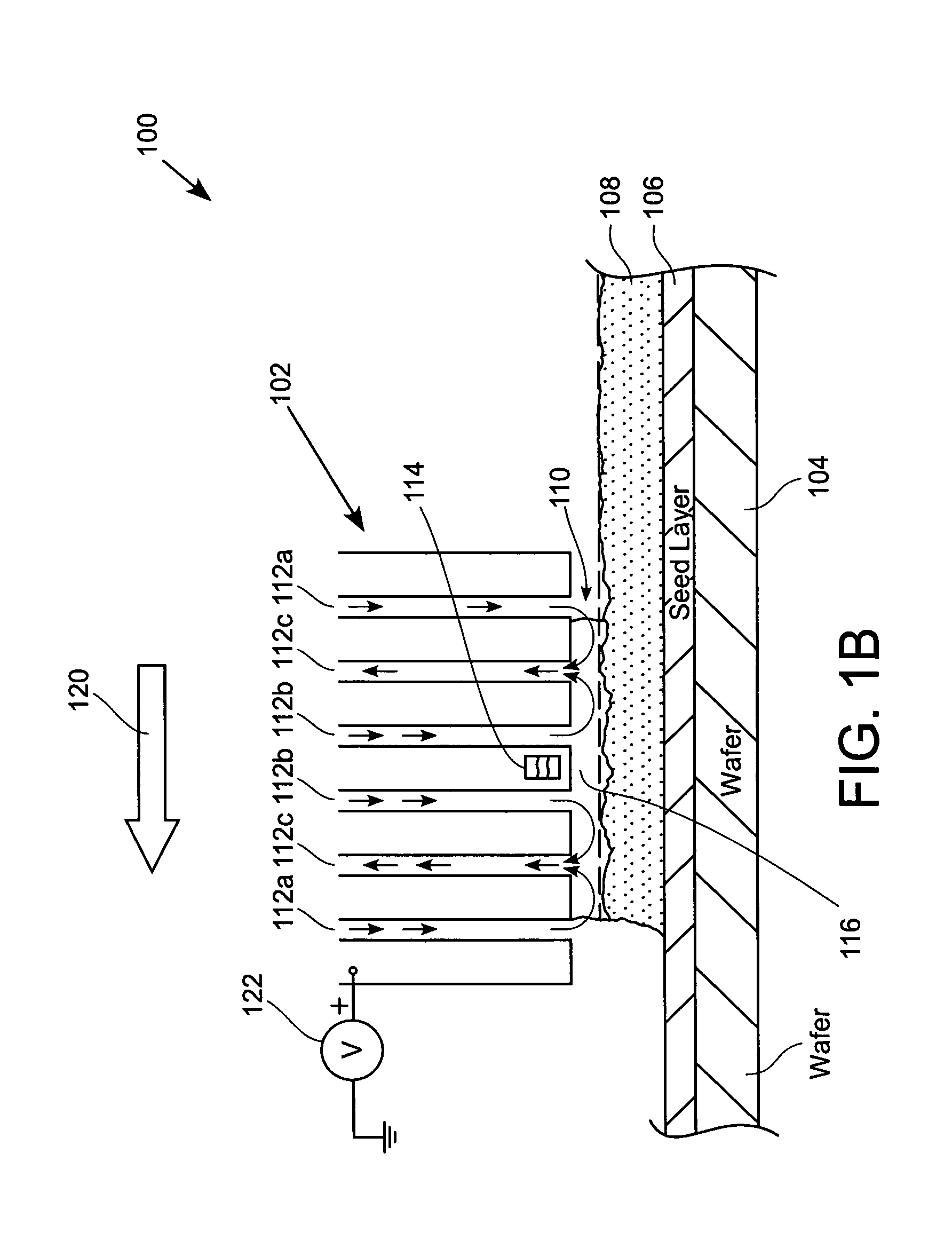Apparatus and method for depositing and planarizing thin films of semiconductor wafers
a technology of semiconductor wafers and apparatuses, applied in the direction of electrolysis components, manufacturing tools, electrolysis processes, etc., can solve the problems of limiting the efficiency of surface activation steps, limiting the productivity of plating operations, and significant negative impact on wafer throughput and increasing processing costs, so as to reduce the active area of plating, improve chemical exchange, and reduce the total plating current
- Summary
- Abstract
- Description
- Claims
- Application Information
AI Technical Summary
Benefits of technology
Problems solved by technology
Method used
Image
Examples
Embodiment Construction
[0030] An invention, for methods and apparatuses for electroplating surfaces of a substrate, is disclosed. In the following description, numerous specific details are set forth in order to provide a thorough understanding of the present invention. It will be understood, however, by one of ordinary skill in the art, that the present invention may be practiced without some or all of these specific details. In other instances, well known process operations have not been described in detail in order not to unnecessarily obscure the present invention.
[0031]FIG. 1A is a drawing of an exemplary electroplating apparatus 100 in accordance with one embodiment of the present invention. A wafer 104 with a seed layer 106 is placed on a support 130. A negative bias power supply 124 charges the wafer 104 to function as a cathode by way of electrical contact 132. Electrical contact 132 may be established in the form of a single ring surrounding the wafer 104, an individual mechanical contact, or a...
PUM
| Property | Measurement | Unit |
|---|---|---|
| Thickness | aaaaa | aaaaa |
| Volume | aaaaa | aaaaa |
| Electric potential / voltage | aaaaa | aaaaa |
Abstract
Description
Claims
Application Information
 Login to View More
Login to View More - R&D
- Intellectual Property
- Life Sciences
- Materials
- Tech Scout
- Unparalleled Data Quality
- Higher Quality Content
- 60% Fewer Hallucinations
Browse by: Latest US Patents, China's latest patents, Technical Efficacy Thesaurus, Application Domain, Technology Topic, Popular Technical Reports.
© 2025 PatSnap. All rights reserved.Legal|Privacy policy|Modern Slavery Act Transparency Statement|Sitemap|About US| Contact US: help@patsnap.com



